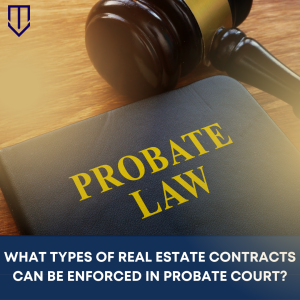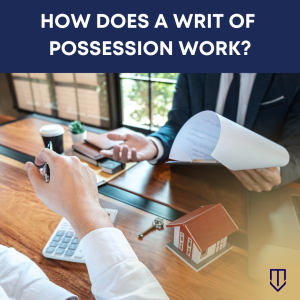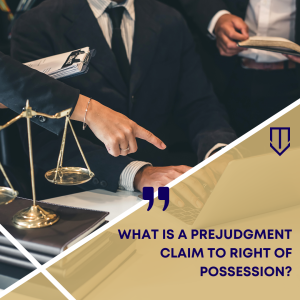 An estate is categorized by the duration of time one holds an interest in the estate. For example, an estate acquired through inheritance is categorized differently from an estate for years. There are three different ways an estate can be categorized, which is codified in California Civil Code section 765. Essentially, section 765 categorizes an estate based on the character of the property.
An estate is categorized by the duration of time one holds an interest in the estate. For example, an estate acquired through inheritance is categorized differently from an estate for years. There are three different ways an estate can be categorized, which is codified in California Civil Code section 765. Essentially, section 765 categorizes an estate based on the character of the property.
Under section 765, there are freehold estates, chattels real, and chattel interests. Depending on the character of the estate, a person holds different rights in the subject property. At the Underwood Law Firm, our attorneys are more than familiar with freehold estates, chattel real, and chattel interests.
 California Partition Law Blog
California Partition Law Blog



 Yes, although the tenant is not allowed to exclude the non-consenting owners. The reason for this is grounded in ancient legal doctrine regarding the “right to possession” that all co-owners of property share together. Each owner may exercise this right, and each may grant it to a third party, should they so choose, even without the consent of the other owners.
Yes, although the tenant is not allowed to exclude the non-consenting owners. The reason for this is grounded in ancient legal doctrine regarding the “right to possession” that all co-owners of property share together. Each owner may exercise this right, and each may grant it to a third party, should they so choose, even without the consent of the other owners. 
 While it may not be obvious, a sizeable portion of the work that real estate agents and realtors do is court-ordered. Real estate law is a massive field, and often, the disposition of litigation results in the court forcing the sale of a property, be it a business, home,
While it may not be obvious, a sizeable portion of the work that real estate agents and realtors do is court-ordered. Real estate law is a massive field, and often, the disposition of litigation results in the court forcing the sale of a property, be it a business, home,  Real estate contracts are an expansive field of both law and life.
Real estate contracts are an expansive field of both law and life.  In California, a real estate investment trust is “any unincorporated association or trust formed to engage in business and managed by, or under the direction of, one or more trustees for the benefit of the holders or owners of transferable shares of beneficial interest in the trust estate and (1) that formed for the purpose of engaging in business as a real estate investment trust under the Federal Internal Revenue Code, (2) the sale of the shares of which has been qualified at any time by the Commissioner of Business Oversight pursuant to the Corporate Securities Law of 1968, and (3) that in good faith has commenced business as a real estate investment trust.” (Cal. Corp. Code
In California, a real estate investment trust is “any unincorporated association or trust formed to engage in business and managed by, or under the direction of, one or more trustees for the benefit of the holders or owners of transferable shares of beneficial interest in the trust estate and (1) that formed for the purpose of engaging in business as a real estate investment trust under the Federal Internal Revenue Code, (2) the sale of the shares of which has been qualified at any time by the Commissioner of Business Oversight pursuant to the Corporate Securities Law of 1968, and (3) that in good faith has commenced business as a real estate investment trust.” (Cal. Corp. Code  Generally, a bankruptcy proceeding acts as a stay on the collection of debt as well as any acts needed to be taken to enforce a debt. The rules regarding
Generally, a bankruptcy proceeding acts as a stay on the collection of debt as well as any acts needed to be taken to enforce a debt. The rules regarding  When a loved one passes away, probate proceedings are hopefully not the first thing on their relatives’ minds. Probate is, however, an inevitability, even when a trust is present and effective. But inheritance is not always the blessing that the public conscious imagines it to be. The simple truth is that owning property in California is an expensive endeavor that carries with it tons of monetary responsibility. Faced with the possibility of inheriting something an individual simply cannot afford, there is an option: a disclaimer of interest.
When a loved one passes away, probate proceedings are hopefully not the first thing on their relatives’ minds. Probate is, however, an inevitability, even when a trust is present and effective. But inheritance is not always the blessing that the public conscious imagines it to be. The simple truth is that owning property in California is an expensive endeavor that carries with it tons of monetary responsibility. Faced with the possibility of inheriting something an individual simply cannot afford, there is an option: a disclaimer of interest.  A Prejudgment Claim to Right of Possession is a form used for the purpose of avoiding third-party claims in an eviction/unlawful detainer action. The Prejudgment Claim to Right Possession is for the purpose of giving notice to any unnamed occupants of a subject property that an eviction action has been initiated. After a prejudgment claim to right of possession, any unnamed occupants may file their own prejudgment claim form to preserve their rights in the subject property. If said unnamed occupants fail to do so, those unnamed occupants will lose their rights in the subject property, and the eviction action may proceed.
A Prejudgment Claim to Right of Possession is a form used for the purpose of avoiding third-party claims in an eviction/unlawful detainer action. The Prejudgment Claim to Right Possession is for the purpose of giving notice to any unnamed occupants of a subject property that an eviction action has been initiated. After a prejudgment claim to right of possession, any unnamed occupants may file their own prejudgment claim form to preserve their rights in the subject property. If said unnamed occupants fail to do so, those unnamed occupants will lose their rights in the subject property, and the eviction action may proceed.